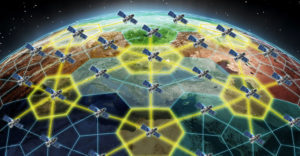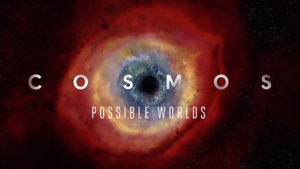
NASA Ames Research Center signed a Space Act Agreement withGoogle’s on Monday that may pave the way for the search giant to explore space. The organizations will collaborate on a variety of challenging technical problems ranging from large-scale data management and massively distributed computing to human-computer interfaces.
“This agreement between NASA and Google will soon allow every American to experience a virtual flight over the surface of the moon or through the canyons of Mars,” said NASA Administrator Michael Griffin. “This innovative combination of information technology and space science will make NASA’s space exploration work accessible to everyone.”
First Things First
As the first in a series of joint collaborations, Google and Ames will focus on making the most useful of NASA’s information available on the Internet.
Future joint projects may include real-time weather visualization and forecasting; the production of high-resolution 3-D maps of the moon and Mars; and real-time tracking of the international space station and the space shuttle.
“NASA has collected and processed more information about our planet and universe than any other entity in the history of humanity,” said Chris C. Kemp, director of strategic business development at Ames. “Even though this information was collected for the benefit of everyone, and much is in the public domain, the vast majority of this information is scattered and difficult for non-experts to access and to understand.”
Indexing the World’s Information
Google’s partnership with NASA is in line with the search giant’s mission to organize the world’s information. That is a mission Google takes seriously, according to Sterling Market Intelligence Principal Analyst Greg Sterling.
This collaboration does that in a very literal sense. Skeptics see the NASA move as just another way for Google to monetize its brand, but Sterling is convinced that the company is sincere about its informational mission. The brand building is a byproduct of its mission.
“With each new product Google builds out, the company creates another use case for a user to visit Google to conduct a search. It’s part of Google’s brand management, though I don’t think they necessarily see it in those terms,” Sterling told TechNewsWorld.
“Google owns the brand in search online, and part of that ongoing brand management is to make Google the most useful search engine out there, which includes adding new capabilities and databases,” Sterling concluded.
Long-Term Plans
“Partnering with NASA made perfect sense for Google, as it has a wealth of technical expertise and data that will be of great use to Google as we look to tackle many computing issues on behalf of our users,” said Google CEO Eric Schmidt.
NASA and Google intend to collaborate in a variety of areas, including incorporating agency data sets in Google Earth, a platform that lets users tap into satellite imagery to explore local points of interest.
NASA and Google will also focus on user studies and cognitive modeling for human computer interaction, and science data search that incorporates a variety of Google features and products. NASA and Google are finalizing details for additional collaborations that include joint research, products, facilities, education and missions.





















































